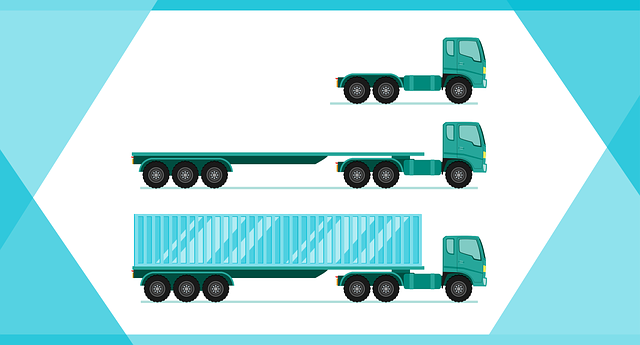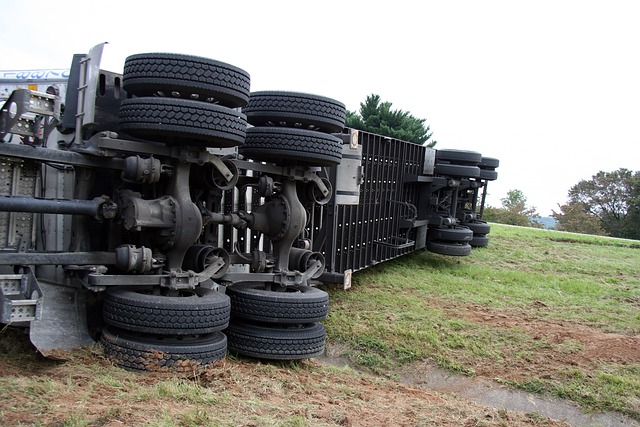The transportation sector is under increasing environmental scrutiny, particularly concerning the sustainability of truck batteries, which are integral to the transition towards electric trucks. Stricter regulations are being introduced worldwide to minimize the ecological footprint associated with battery production, use, and disposal. These regulations cover material sourcing, toxicity levels, energy efficiency, and recycling practices. The trucking industry must adapt swiftly to meet these new standards, which not only aim to protect the environment but also offer potential economic benefits through sustainable practices. Fleets are encouraged to stay proactive in embracing eco-friendly battery solutions to ensure compliance with regulations and to lead in innovation within the sector. The upcoming legislation is poised to transform how the industry manages truck batteries, promoting a circular economy and fostering responsible stewardship of resources for a more sustainable future.
As the transportation sector navigates the shift towards sustainable practices, the environmental impact of truck batteries has emerged as a critical issue. This article delves into the pivotal regulations shaping the eco-friendly disposal and recycling of these power sources, highlighting their significance in curbing environmental degradation. We will explore the comprehensive regulatory frameworks that govern battery lifecycles worldwide, emphasizing the impact of Extended Producer Responsibility (EPR) on reducing truck battery waste. Additionally, we will scrutinize compliance requirements for handling hazardous materials and assess the implications of truck batteries on air quality, all while considering current emission reduction mandates. The design of future truck batteries holds a key role in mitigating these risks, which this article aims to illuminate. Furthermore, we will dissect the complexities of regulations concerning battery chemical compositions, crucial for trucking fleets’ sustainability. As we look ahead, anticipating the evolution of legislation, staying informed on upcoming environmental standards for truck batteries is imperative for industry compliance and innovation.
- Overview of Battery Environmental Impact and Its Significance in Trucking Industries
- Regulatory Frameworks Governing Battery Disposal and Recycling Across Global Markets
- The Role of Extended Producer Responsibility (EPR) in Managing Truck Battery Waste
- Compliance with Hazardous Waste Handling Standards for Truck Batteries
- Assessing the Impact of Truck Batteries on Air Quality and Emission Reduction Mandates
- The Importance of Battery Design in Mitigating Environmental Risks in the Trucking Sector
- Navigating the Complexities of Battery Chemical Composition Regulations for Trucking Fleets
- Future Trends and Legislation: Anticipating Changes in Truck Battery Environmental Regulations
Overview of Battery Environmental Impact and Its Significance in Trucking Industries

The environmental impact of batteries, particularly those used in the trucking industry, is a critical issue that has gained significant attention due to the growing reliance on heavy-duty vehicles for transportation and logistics. Traditional lead-acid truck batteries, while historically reliable, are not environmentally friendly; they contain toxic substances such as sulfuric acid and lead, which can leach into the soil and water sources if improperly disposed of or when reaching the end of their lifecycle. Conversely, modern alternatives like lithium-ion truck batteries offer a more sustainable option, as they have higher energy densities, longer service life, and are more efficient in operation, leading to lower emissions from the trucks themselves. The transition to these advanced batteries is not only beneficial for reducing greenhouse gas emissions but also for mitigating the environmental risks associated with battery disposal and recycling. Regulatory frameworks across various regions are increasingly stringent, mandating responsible practices for battery handling, disposal, and recycling to minimize ecological harm. Compliance with these regulations is essential for businesses in the trucking industry to not only adhere to environmental standards but also to future-proof their operations against upcoming stricter regulations and to position themselves as responsible stewards of the environment. The significance of this shift cannot be overstated, as it directly impacts the sustainability of one of the most carbon-intensive industries, contributing to a reduced carbon footprint and promoting the use of cleaner technologies in transportation.
Regulatory Frameworks Governing Battery Disposal and Recycling Across Global Markets

Regulatory frameworks governing battery disposal and recycling are critical in mitigating the environmental impact of batteries, including those used in trucks. Across global markets, these regulations vary but increasingly emphasize the importance of sustainable practices. In the European Union, directives such as the Battery Directive set stringent guidelines for the collection, treatment, and recycling of all types of batteries, with specific provisions for industrial batteries, which include truck batteries due to their size and chemical composition. This directive aims to reduce the harmful effects associated with improper disposal by ensuring a minimum recycling rate and outlining best practices for battery recovery.
The United States has a similar regulatory approach with the Resource Conservation and Recovery Act (RCRA) establishing the framework for managing hazardous waste, which encompasses certain types of batteries. The Environmental Protection Agency (EPA) further defines how truck batteries and other lead-acid batteries should be managed at their end-of-life. Additionally, state-specific regulations often supplement these federal guidelines to address local environmental concerns and promote the development of recycling infrastructure. These regulations are pivotal in ensuring that the disposal and recycling of truck batteries do not contribute to environmental degradation but instead facilitate a circular economy where valuable materials can be recovered and reused. Global markets like Japan and South Korea also have robust battery take-back systems, with Japan’s Law for the Promotion of Effective Utilization of Batteries/Capacitors mandating that manufacturers assume responsibility for recycling their batteries, including those from trucks. These regulatory frameworks are essential in ensuring a responsible approach to battery disposal and recycling across the globe.
The Role of Extended Producer Responsibility (EPR) in Managing Truck Battery Waste

Extended Producer Responsibility (EPR) plays a pivotal role in the sustainable management of waste from truck batteries, which are critical components for heavy-duty vehicles and industrial applications. Under EPR frameworks, producers are accountable for the lifecycle of their products, including the end-of-life phase. This mandates manufacturers to implement strategies for collecting, recycling, and properly disposing of spent truck batteries. The EPR approach not only ensures compliance with environmental regulations but also drives innovation in recycling technologies, aiming to recover valuable materials such as lead, plastics, and metals. By taking responsibility for the post-use phase of their products, producers contribute significantly to reducing the environmental impact of battery waste, fostering a circular economy where resources are reused and recycled rather than discarded. This not only mitigates ecological risks associated with improper disposal but also supports the development of a more sustainable and resilient battery industry. EPR initiatives are instrumental in aligning market forces with environmental sustainability, making them indispensable in the context of truck battery waste management.
Compliance with Hazardous Waste Handling Standards for Truck Batteries

The disposal and recycling of truck batteries necessitate strict adherence to hazardous waste handling standards, which are critical for mitigating environmental impact and ensuring public safety. These standards dictate precise procedures for transporting, storing, and processing spent truck batteries due to their high lead content and other potentially harmful substances. The Environmental Protection Agency (EPA) in the United States has set forth regulations under the Resource Conservation and Recovery Act (RCRA), which classify batteries as hazardous waste unless specifically exempted. Compliance with these regulations is mandatory for businesses involved in battery handling, as they establish protocols to prevent contamination of soil and water sources. Facilities must implement measures such as containment systems, proper labeling, and inventory control to manage truck batteries responsibly. Additionally, the Occupational Safety and Health Administration (OSHA) provides guidelines to protect workers from exposure to hazardous materials during the handling process. Adherence to these standards not only safeguards the environment but also fosters consumer trust in the industry’s commitment to sustainability and compliance with environmental regulations.
Assessing the Impact of Truck Batteries on Air Quality and Emission Reduction Mandates

The environmental impact of truck batteries, particularly their contribution to air quality, has been a growing area of concern as fleets transition to electric vehicles (EVs) for sustainability and regulatory compliance. The deployment of truck batteries necessitates a careful assessment of their emissions during both the charging process and their lifecycle. Traditional internal combustion engine trucks emit a range of pollutants, including nitrogen oxides (NOx), particulate matter (PM), and volatile organic compounds (VOCs). The shift to electric trucks promises a reduction in these harmful emissions. However, the production and disposal of batteries can introduce new environmental challenges, such as the release of greenhouse gases (GHGs) and heavy metal leaching if not managed properly.
Regulatory bodies across the globe have been implementing emission reduction mandates to address these concerns. For instance, the Environmental Protection Agency (EPA) in the United States has set stringent standards for air quality improvement, which indirectly influence the trucking industry’s environmental practices. These regulations often require fleet operators to adopt cleaner technologies and encourage the use of truck batteries that meet specific environmental criteria. The focus is on reducing the overall carbon footprint and minimizing the release of toxic substances into the atmosphere. As a result, the trucking sector is increasingly investing in advanced battery technologies that are not only energy-efficient but also environmentally benign throughout their entire lifecycle. This proactive approach aligns with global efforts to combat climate change and improve public health by reducing emissions from the transportation sector.
The Importance of Battery Design in Mitigating Environmental Risks in the Trucking Sector

The design of truck batteries plays a pivotal role in mitigating environmental risks within the trucking sector. As the backbone of transportation and logistics, trucks consume significant amounts of energy, primarily through their batteries. Innovations in truck battery design not only enhance performance and longevity but also minimize the ecological footprint. By incorporating advanced materials and energy-efficient technologies, manufacturers can reduce the release of harmful substances during charging and discharging cycles, which are detrimental to both aquatic and terrestrial ecosystems. Moreover, sustainable battery designs contribute to the reduction of greenhouse gas emissions, a critical factor in combating climate change. The adoption of such eco-friendly batteries not only aligns with environmental regulations but also prepares the trucking industry for future legislative measures aimed at protecting natural resources and promoting cleaner transportation solutions.
Regulations governing the environmental impact of batteries in the trucking sector are becoming increasingly stringent, reflecting a global shift towards sustainability. These regulations set benchmarks for battery performance, waste management, and recycling practices, ensuring that manufacturers prioritize environmental considerations throughout the battery lifecycle. By adhering to these guidelines, the industry can prevent pollution and manage resources more effectively. The integration of smart grid technologies with truck batteries further enhances energy efficiency, allowing for optimized charging schedules that take advantage of renewable energy sources. As a result, the evolution of truck battery design is not just a response to environmental concerns but also a proactive step towards a greener future for the trucking sector.
Navigating the Complexities of Battery Chemical Composition Regulations for Trucking Fleets

The environmental impact of batteries, particularly those used in trucking fleets, has become a focal point for regulators worldwide. As the demand for sustainable transportation solutions grows, so does the scrutiny on the chemical composition and lifecycle of truck batteries. Regulations governing these aspects are complex and multifaceted, requiring careful navigation by fleets to ensure compliance. Truck batteries, owing to their significant contribution to overall vehicle emissions, are subject to stringent guidelines that dictate material sourcing, disposal protocols, and recycling methods. These regulations aim to mitigate the environmental footprint associated with battery production, use, and end-of-life management. Fleets must stay abreast of regional standards, which may vary in terms of permitted materials, toxicity levels, and energy efficiency benchmarks. The evolving landscape of battery regulations necessitates a proactive approach by trucking fleets to adapt their operations accordingly, ensuring not only compliance but also contributing to the reduction of the industry’s environmental impact. Adherence to these regulations not only safeguards the environment but also positions fleets at the forefront of innovation and sustainability in the trucking sector.
Future Trends and Legislation: Anticipating Changes in Truck Battery Environmental Regulations

As the transportation sector continues its transition towards more sustainable practices, the regulations governing the environmental impact of truck batteries are evolving. The push for electric trucks is gaining momentum, driven by both environmental concerns and economic incentives. In this context, upcoming legislation is likely to set stringent standards for the disposal, recycling, and manufacturing of truck batteries. These regulations will focus on minimizing the ecological footprint associated with battery production and lifecycle management. Manufacturers are anticipating tighter restrictions on hazardous waste emissions and more rigorous requirements for the recovery of valuable materials from spent batteries. This shift is not only a response to growing public awareness about environmental issues but also reflects the increasing recognition that sustainable practices can lead to cost savings and innovation in the long term. The transportation industry must stay abreast of these changes to comply with new regulations and to position itself as a leader in eco-friendly logistics solutions. As such, the forthcoming legislation is poised to reshape the trucking sector’s approach to battery management, emphasizing circular economy principles and the responsible stewardship of resources.
In conclusion, the environmental impact of truck batteries is a multifaceted issue that demands careful regulation and strategic management. The article has outlined the critical aspects of current regulatory frameworks across global markets, emphasizing the importance of compliance with hazardous waste handling standards and the role of Extended Producer Responsibility (EPR) in managing truck battery waste effectively. It is clear that the design of truck batteries plays a pivotal role in mitigating environmental risks, and stakeholders must remain vigilant in adapting to new legislation and compliance requirements. As we look to the future, it is imperative for the trucking industry to stay abreast of emerging trends and impending regulations to ensure sustainability and minimize harm to the environment. By proactively addressing these challenges through responsible design, disposal, and recycling practices, the trucking sector can contribute positively to global environmental health.



